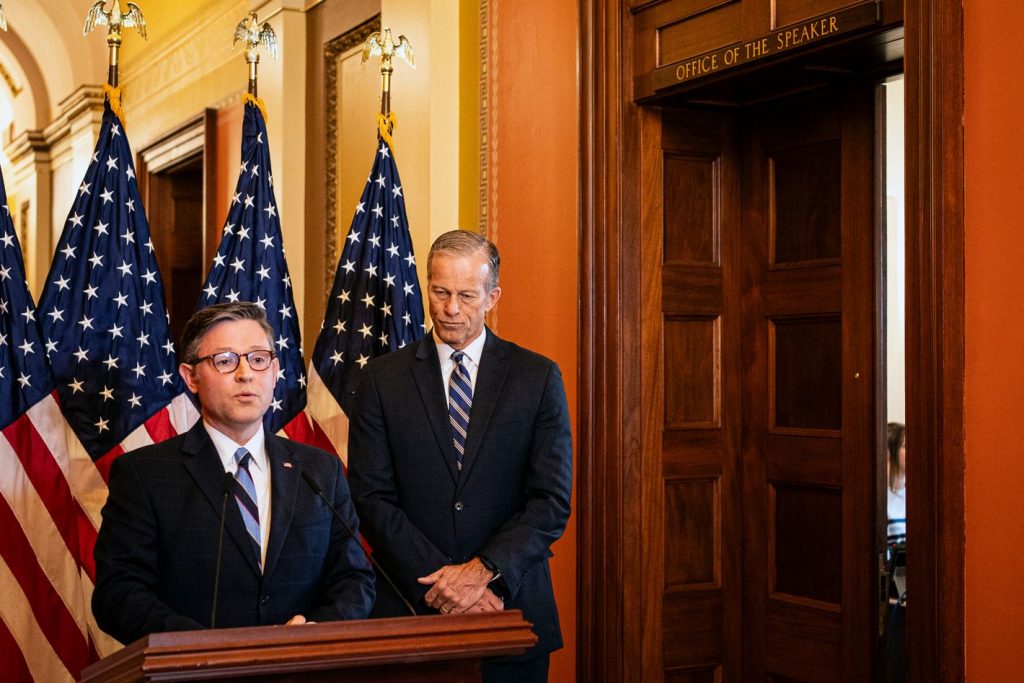Photo: Haiyun Jiang/The New York Times/Redux
For all the freaking out over the latest logjam in the House over President Trump’s budget-reconciliation bill, it was an incredibly predictable development.
Late last week, four hard-line House Freedom Caucus members formally blocked the advancement of the bill from the Budget Committee. As it turns out, it was only a temporary setback; after securing some minor concessions, they voted “present” on a reconsideration of the bill late Sunday night, allowing it to go to the Rules Committee, the last stop before a floor vote.
Republicans leaders couldn’t have been happy, but they couldn’t have been surprised either. The tiny GOP margin in the House and the vast breadth of Trump’s “one big, beautiful bill” gave multiple Republican factions the leverage to pull a power play to tweak the legislation to their liking. The odds are very high that with enough pressure from President Trump, any GOP rebels will knuckle under. When push comes to shove, they aren’t going to destroy the vehicle for Trump’s entire legislative agenda, so the game is to keep the threats coming until the last possible moment.
But even as House Republicans move in fits and starts toward the finish line for this legislation, Senate Republicans are creating a plan B that undermines the intense pressure on the rebels. They’re renewing their calls for breaking up the “big, beautiful bill” into less beauteous but more digestible chunks, which would reverse the strategic decision Trump made back in January before his inauguration, as The Hill reports:
Senate Republicans say the House-drafted bill to enact President Trump’s legislative agenda has “problems” and are taking a second look at breaking it up into smaller pieces in hopes of getting the president’s less controversial priorities enacted into law before the fall …
Several Republican senators say the best way to jump-start the stalled bill would be to break it up into two or three pieces and pass the elements of Trump’s agenda that have the most support in Congress first.
Sounds familiar, doesn’t it? That’s because this strategy was proposed by Senate Republican leader John Thune from the get-go before Trump himself shot it down. Then as now, the idea would be to begin with a quick reconciliation bill shoving lots of money at ICE and the Pentagon and paying for some or all of it by revoking Joe Biden’s clean-energy subsidies and other allegedly woke disposable items, giving Trump a “win” before the more complex and controversial tax and budget cuts were worked through. Some of the Freedom Caucus’s Senate friends also fear one big bill won’t be vicious enough:
Sen. Ron Johnson (R-Wis.) has been the most vocal in calling for the bill to be broken up into two or several pieces. Johnson said the spending cuts in the House bill are “fake.”
He has argued to colleagues that they should split up the bill to pass the less controversial elements quickly and “give us the time” to get the trickier policy questions “right.”
There are a couple of problems with this suggestion, aside from the fact that it would mean acknowledging Trump made a bad call earlier. First, the one absolute must-have on the table is a debt-limit increase or suspension. As Trump demanded, it’s in the House bill, safely protected by the sheer bulk of everything else. A “quick win” bill could push everything else dangerously close to the “X date” (currently estimated as arriving in August) when the federal government will no longer be able to meet its obligations.
Second, the whole idea behind the one-bill strategy was that its all-or-nothing dynamics would make House passage much more likely. If fractious Republicans knew they could risk defeat or terminal delay of one bill without killing Trump’s entire agenda, they might take a chance on going rogue. Indeed, even discussion of a plan B might encourage the Freedom Caucus gang of four to escalate or toughen their demands while tempting “moderates” to emulate their stubbornness.
Beyond all that, it’s a very bad look for Republicans to find themselves still debating their basic legislative strategy three months into what was supposed to be a machinelike GOP trifecta regime. They can’t blame Democrats for any of this disorder, and they certainly can’t blame Trump for moving slowly at his end of Pennsylvania Avenue. Maybe the senators can convince the president to order them to rethink the number of reconciliation bills; he sure hasn’t had any reluctance to rethink his tariff strategy every other day. Certainly Memorial Day would be a good time to get a serious schedule set in stone.

